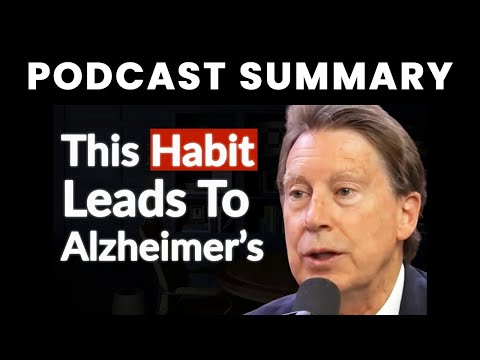Dementia Patient Remembers
Disclaimer: Additional Information That Is Not In Video
Alzheimer’s disease, a form of dementia, profoundly affects memory and cognition, yet amidst its challenges, there’s a remarkable phenomenon—music’s ability to unlock memories and emotions in those living with the condition. This article explores the poignant stories and research behind how music serves as a bridge to cherished memories for Alzheimer’s patients and their loved ones.
Understanding Alzheimer’s Disease and Memory Loss
Alzheimer’s disease is a progressive brain disorder that gradually impairs memory and cognitive function. As the disease advances, individuals may struggle to recognize loved ones, recall recent events, or carry out daily tasks independently. However, certain memories, particularly those associated with music, can remain surprisingly intact.
The Role of Music in Memory Retrieval
Music has a unique ability to evoke powerful emotions and memories. Even when other forms of memory are compromised, familiar songs from one’s youth or significant life events can spark recollections, emotions, and a sense of connection to one’s past.
Heartwarming Stories of Music’s Impact
Chris’s Story: In a touching documentary featured at Sundance Film Festival, Chris, diagnosed with early-onset Alzheimer’s, finds joy and solace in music. When his favorite songs play, he lights up, singing along with lyrics he remembers from decades ago. Music not only brings him happiness but also helps his family connect with him on a deeper level, creating moments of shared joy and nostalgia.
The Bates Family’s Journey: In an illuminating interview, the Bates family shares how music has become a lifeline for their father, stricken by severe Alzheimer’s. Despite his inability to recognize family members or carry on conversations, he reacts with delight when his favorite tunes play. Music allows them to share precious moments of laughter, tears, and heartfelt connection that transcend the barriers imposed by the disease.
Scientific Insights into Music’s Effects
Research supports the profound impact of music on Alzheimer’s patients:
Memory Retrieval: Studies have shown that music can stimulate areas of the brain associated with memory retrieval, even in individuals with severe cognitive decline.
Emotional Response: Familiar music can elicit emotional responses and improve mood, reducing agitation and behavioral symptoms commonly associated with dementia.
Music as a Therapeutic Tool
Recognizing the therapeutic potential of music, caregivers and healthcare professionals incorporate music therapy into dementia care programs:
Personalized Playlists: Creating personalized playlists tailored to each individual’s musical preferences and life experiences can enhance the effectiveness of music therapy.
Group Sessions: Group singing or listening sessions provide social interaction and a sense of community among patients, fostering emotional well-being and reducing feelings of isolation.
The Power of Musical Memories
A Son’s Reflection: Reflecting on his mother’s journey with Alzheimer’s, Michael shares how a song from her youth instantly brings a smile to her face, even when she struggles to remember his name. Music allows him to glimpse moments from her past, preserving her identity and enriching their relationship despite the challenges they face.
Educational Initiatives: Educational initiatives like the Op-Docs featurette “Alive Inside” highlight the transformative impact of music on Alzheimer’s patients. These documentaries not only raise awareness but also inspire viewers to integrate music into the lives of their loved ones with dementia.
Looking Ahead: Enhancing Quality of Life
As we continue to unravel the mysteries of Alzheimer’s disease, the role of music in enhancing quality of life for patients remains a beacon of hope. By harnessing music’s power to stimulate memories, evoke emotions, and foster meaningful connections, we can enrich the lives of those affected by Alzheimer’s and pave the way for innovative approaches to dementia care.
Conclusion
Music has a profound ability to transcend the barriers of Alzheimer’s disease, unlocking cherished memories and emotions that endure even as other aspects of cognition fade. Through heartwarming stories, scientific insights, and personal reflections, we witness the transformative impact of music on Alzheimer’s patients and their families. As we strive to support and care for individuals living with dementia, let us recognize and celebrate the enduring power of music—an invaluable gift that brings joy, comfort, and connection to those who need it most.













![Early Symptoms of Alzheimer’s Disease | Alzheimer’s Risk Factors | Lakshmi Hospital [Video]](https://neurosupportgiving.com/wp-content/uploads/2024/06/mp_234550_0_0jpg.jpg)
![Interview: Enduring Powers of Attorney with Bill Yeates, Dementia Advocate [Video]](https://neurosupportgiving.com/wp-content/uploads/2024/06/mp_217300_0_0jpg.jpg)

![Never Eat Coffee with This ☕ Causes Cancer and Dementia! 3 Best & Worst Food Recipes Health Benefits [Video]](https://neurosupportgiving.com/wp-content/uploads/2024/06/mp_230311_0_0jpg.jpg)

